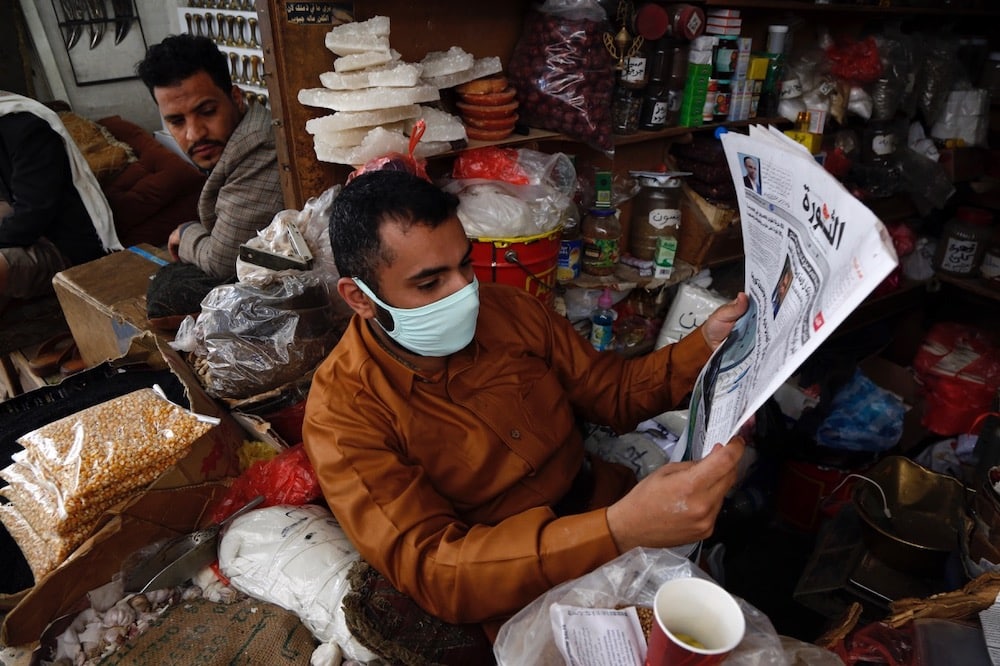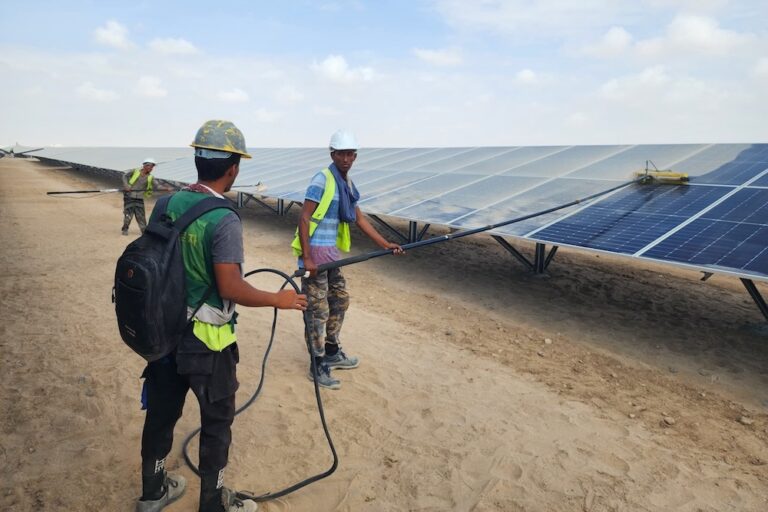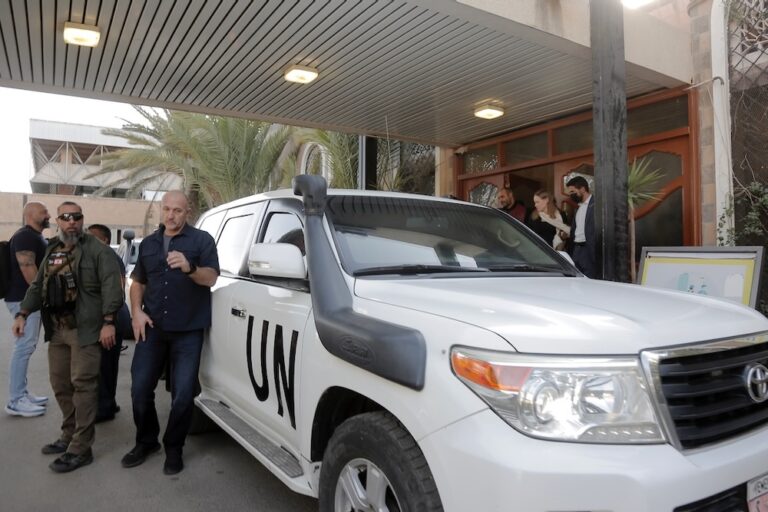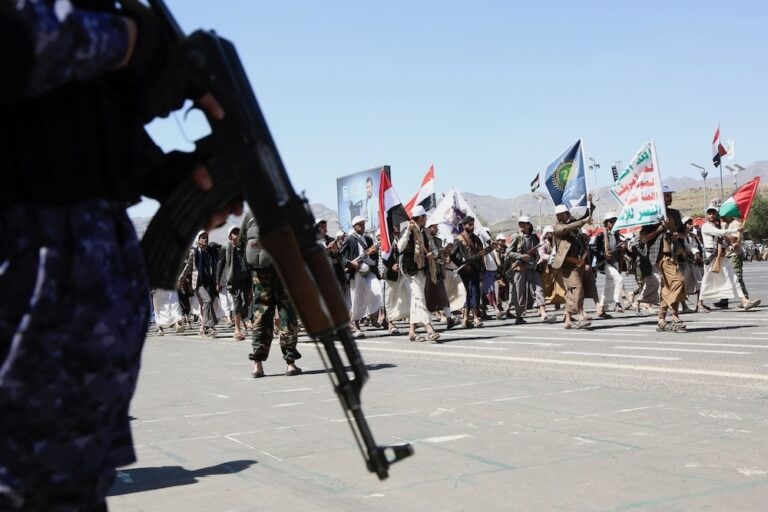Yemeni reporters are caught in the crossfire between three forces.
This statement was originally published on rsf.org on 24 August 2022.
Reporters Without Borders (RSF) and two Yemeni NGOs – Marsadak and the Insaf Centre – call for the immediate release of three Yemeni journalists, each of whom is being held in one of three main warring regions in which Yemen is now divided. One was jailed last month, while the other two have been held for a year or more.
“These three cases of imprisonment show that all of parties to the Yemeni conflict, without exception, commit violations against journalists,” said Sabrina Bennoui, the head of RSF’s Middle East desk. “Depending on who controls the region, reporters are caught in the crossfire between three forces, not just two – between the internationally recognised government, the
Southerners and the Houthis.
The three journalists are Ahmed Maher, Jamil Al-Samet and Younis Abdulsalam. One is held by the government recognised by the international community, which is backed by the Saudi-led Arab coalition. One is held by the Southern Transitional Council (STC), which is backed by the United Arab Emirates. And one is held by the Houthi rebels, who are backed by Iran.
Maher is the latest to be jailed. A freelance journalist and former editor of the Marsad Aden news website, he was kidnapped along with his brother on 6 August in Aden by gunmen affiliated to the CTS, which controls this southern province. They accuse him of being implicated in “matters that compromise the region’s security and stability.” His family says this is not true.
RSF has learned that Maher was previously the spokesman of the “Transports Brigade” but resigned from this position. An offshoot of the internationally recognised government, the “Transports Brigade” is regarded by the STC as a terrorist organisation. On his Facebook page, Maher nowadays describes himself as “politically independent.”
Mohamed Esmail, the executive director of Marsadak (the Yemen Media Freedom Observatory), has initiated legal proceedings designed to provide Maher with a lawyer. He said, “members of the security services beat Ahmed Maher’s father when he tried to visit his son and searched his car and mobile phone.”
Last April, Maher’s home was ransacked and his family was threatened. The STC previously issued a warrant for his arrest in 2019.
Samet has been jailed since February 2019 in the city of Taiz, part of which is currently controlled by the internationally recognised government and part is occupied by the Houthis.
In May 2022, he was sentenced by a Taiz court to a year in prison and a fine for “insulting generals.”
A freelancer reporting for various media outlets, including the pan-Arab news site Al-Wahdawi, Samet had denounced corruption within the Taiz Axis, a military brigade tasked with protecting the city for the internationally recognised government. Most of the brigade’s officers are affiliated to the Islah Party, the Muslim Brotherhood’s Yemeni branch.
Abdulsalam is a freelancer who has been held by the Houthis in Sanaa since 4 August 2021 for “communicating with foreign entities.” He initially spent 80 days in solitary confinement and suffers from obsessive-compulsive disorder which has been exacerbated by the psychological effects of the torture and mistreatment he has received in detention. But he is still waiting to receive medical care, according to a report that RSF managed to obtain.
“The UN Security Council and special envoys in Yemen must apply more pressure on all the parties, especially the Houthis, who have also sentenced four journalists to death,” said Eman Homaid, the director of the Insaf Centre, which defends freedoms and minorities.



